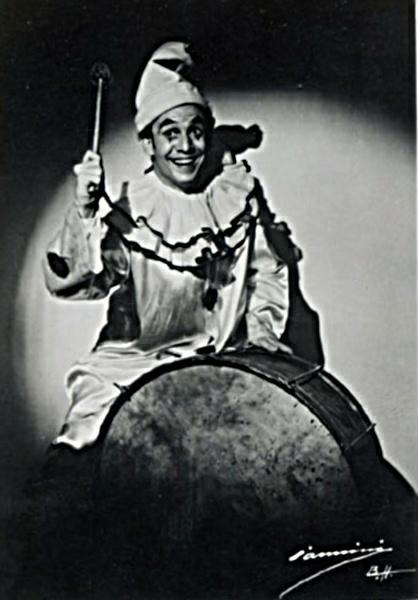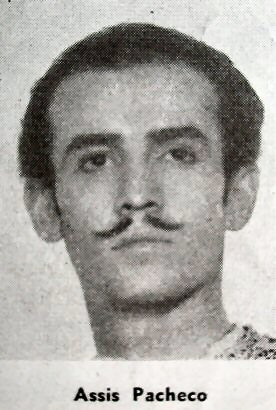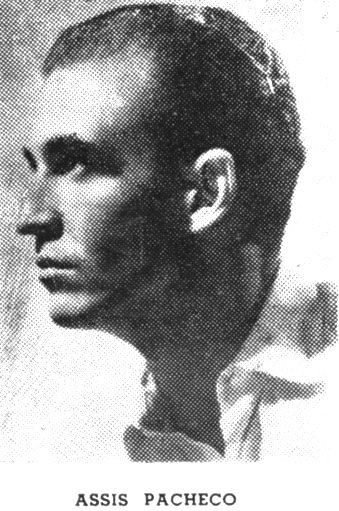Assis Pacheco
5 October 1914–2005
Canio
I wish to thank Daniele Godor for the picture (second from top).
I wish to thank Eduardo Gabarra for the picture (bottom).
Armando de Assis Pacheco was born at Itu, state of São Paulo, Brazil, in 1915 and made his debut in São Paulo in 1938, singing
Rodolfo in La bohème. Soon thereafter he was engaged by the opera theaters of Rio de Janeiro and São Paulo. In 1946, he
went to Italy, staying there until the next year and singing in Napoli, Roma, and other smaller cities. Returning to Brazil, he sang regularly
until 1975, both in Rio and São Paulo, with occasional trips to Argentina, Uruguay and Venezuela. He had an enormous repertory, ranging
from Il barbiere di Siviglia to Otello and Tannhäuser, but usually sang middle-weight roles such as Duca di Mantova,
Alfredo, Rodolfo. Cavaradossi, Pinkerton and Werther. At the end of his career, he often sang Otello, not really suitable for his voice, but his
well-developed acting skills did him good service. Together with singing he studied fine arts and was an admired portrait painter. He used this
ability to design scenery and costumes for some productions, including one of Otello in Rio. In old age, he was afflicted with
Parkinson's disease. He died in 2005.
For his stage name, he used Assis like a first and Pacheco like a family name, while in fact his family name was de Assis
Pacheco, and his first name was Armando. He was a legend in Brazil (justly so!!), and one of the very few Brazilian singers up to his time who
could make a living from singing alone (though his paintings contributed to his earnings, as well; he had already paid for his singing lessons
with a painting of his voice teacher, otherwise he could not have afforded to study). He also appeared in various films. A famous anecdote tells
how when Beniamino Gigli sang in Rio in 1950, members of the choir and other employees of Theatro Municipal stood in awe in the corridor in
front of the dressing rooms, and listened to the fantastic tenor warming up his voice; then the door of the dressing room opened, and the one
who stepped out was not Gigli – but Pacheco.
Assis Pacheco was one of the greatest tenors of all times, period. A resplendent voice, an interesting, slightly veiled timbre, yet with a
brilliant, easy top; a thrilling interpreter of utmost musicality; virile yet able of the most delicate accents; excellent diction in
various languages: this man had it all. It's a shame that he is all but unknown anywhere outside Brazil.
First of all I wish to thank Assis Pacheco very much for providing me with unpublished live recordings of his
voice. I also wish to thank Eduardo Gabarra for the biographical information.
|


